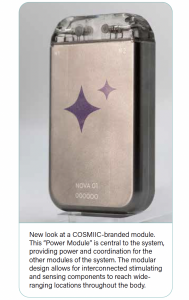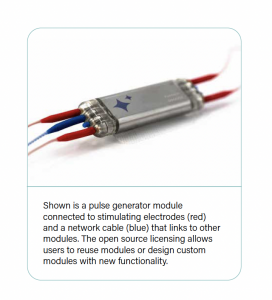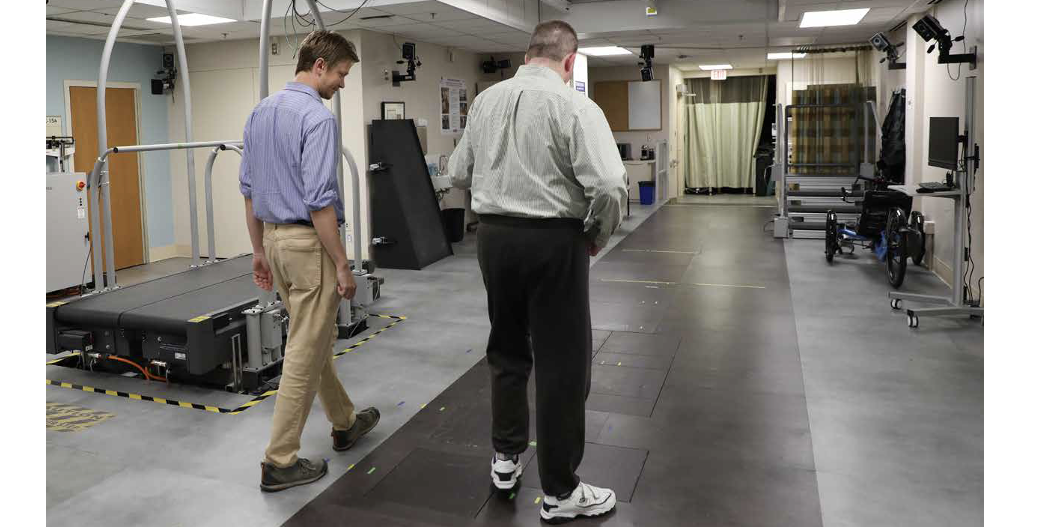VA and MetroHealth Investigator Nathan Makowski PhD Will Lead a New DoD Study Using the Open Source Medical Device Developed in Cleveland.
A 2022-2025 investment in open source implantable technology by the National Institutes of Health (NIH) is fueling new possibilities for patient care with a project being conducted at the Department of Veterans Affairs.
A joint effort with the Advanced Platform Technology (APT) Center, Cleveland Functional Electrical Stimulation (FES) Center, Case Western Reserve University (CWRU), and the MetroHealth System at the VA Northeast Ohio Healthcare System (VANEOHS) is launching the first customization of the existing COSMIIC (Cleveland Open Source Modular Implant Innovators Community) System—a fully implantable neurotechnology platform made available to researchers and startups as “open source” through NIH funding.
Nathan Makowski PhD, a researcher in the MetroHealth Center for Rehabilitation Research, is spearheading this groundbreaking work at the VANEOHS. With a new four-year, $3.9 million Department of Defense (DoD) award through the Spinal Cord Injury Research Program, Dr. Makowski’s team is conducting a first-in-human study of the COSMIIC System for a new use—enabling standing and walking in people with incomplete spinal cord injury (iSCI).
Referencing an existing Investigational Device Exemption (IDE) for the COSMIIC System—originally for another medical indication—the team’s access to an open source IDE reduced the testing and novel documentation required to implement the technology in people with iSCI for walking. The team has secured IDE approval to use the device for an early feasibility study in humans. Achieving this IDE with open documentation demonstrates how fundamental regulatory resources can be shared and how federally funded open source neurotechnology can benefit researchers and Veterans and non-Veterans.
A New Concept for Neurotech Development Supported by SPARC Program Funding
The COSMIIC System itself was established by an investment from the NIH SPARC Program into open source platforms designed to accelerate innovation in bioelectronic medicine. The open source framework offers a new pathway for biomedical researchers to translate work into clinical applications faster by eliminating costs and barriers associated with proprietary technologies. The technology was originally developed at CWRU, supported by the National Institute of Biomedical Imaging and Bioengineering and National Institute of Neurological Disorders and Stroke.
“This DoD funded project at the VA would not be possible without the foundational NIH investment in open source human-grade implantable devices,” said Dr. Makowski. “We are now seeing the potential for scalable, modular technology supported by public funding to directly benefit Americans living with disability.”
This milestone not only represents the first new use of the COSMIIC System in humans, but is also a model of interagency synergy— NIH investment in fundamental technology is being advanced by VA investigators and Department of Defense funding to meet clinical needs. By combining public funding with open innovation, this effort opens new possibilities for restoring independence to those living with disability.










